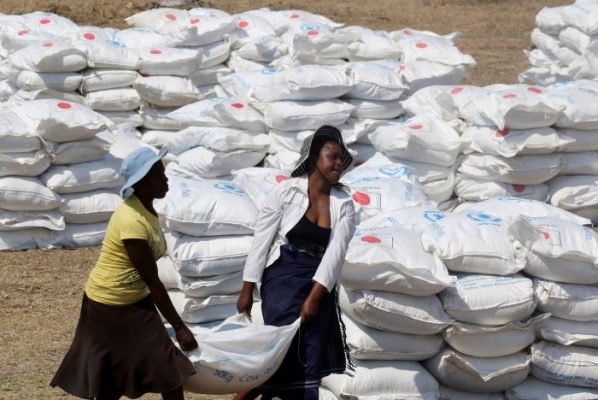
Kurevakwesu, Wilberforce and Mukushi, Adam T
It is a recurring sight that almost every year Africa is plagued by humanitarian calamities of one sort or another. Each time, humanitarian agencies rally to offer help in the shape of funding and resources from the international donor community, made up of what we conventionally call ‘developed’ countries and governments amongst the economic powers in the West. Although the most obvious objective of humanitarian organizations is to save lives, alleviate suffering and protect human dignity during a crisis or disaster, it has been suggested that there is another arguable goal to their efforts: to maintain political power over African countries. The reliance of certain African states on this humanitarian aid is explained by the high incidence of poverty in Africa, lack of urgent response and suitable resources, the governance crisis and the colonial legacy.
The Dependency Syndrome
The reason why most humanitarian work in Africa is in the hands of foreign organisations is best explained by the dependency theory. Because of the way poor states remain peripheral within the world economic system, core wealthy states can continue to get richer at the expense of ‘developing’ countries, so they cover up for this imbalance in trade – with humanitarian aid. This aid creates a dependency syndrome in African states, with humanitarian organisations seen as the tools that help to drive augmenting neo-colonialism in Africa and fostering paternalism, as opposed to partnership. Scholars like Curtis (2001) argue that aid provided by most of these organisations is largely conditional and works to further Western foreign policy objectives, such as the promulgation of new laws and practices, like the legalisation of homosexuality for instance.
According to Akonor (2008), Western governments feel a sense of responsibility towards Africa partly because most of their wealth comes from the continent. More recently, China has joined the African humanitarian industry, with Chinese foundations helping Africans in times of distress and this is arguably because China benefits immensely from exploiting Africa and hence, it offers aid as appeasement. However, it is important to note that African leaders in most cases blame Western governments for all the challenges they face, and it is clear that by blaming Western governments for Africa’s problems, they are implying that the solutions are supposed therefore to come from the West. Amongst many African leaders, there is a lack of motivation to innovation and desire to devise resolutions to save Africa from its irritabilities, so blaming the West is being used as a scapegoat for improving conditions in their own countries. It becomes clear then that until they take responsibility and act accordingly, Africa will not be able to move from aid dependency to trade engagement.
Trade not Aid
The glaring issue remains that the future of African trade depends on what Africa is able to negotiate and not on what aid Africa is handed out. To achieve this, African states need to cultivate a way of handling their own problems in order to be able to fight off their reliance on other countries. Some of the challenges to focus on can include developing and maintaining unity throughout the continent, fighting against tribalism and ethnocentrism, population control and the improvement of ineffectual and corrupt governance. It goes without saying that Africa is one of the richest continents in as far as natural resources are concerned, but the people of Africa do not benefit much from these highly politicised resources.
With sound governance structures in place, African states will become more and more competent and efficient, focusing more on channelling resources away from digressive political matters that weaken development and incite the intervention of foreign humanitarian organizations. In other words, Africa needs to mature politically if it is to record any notable progress.
On another important note, African leaders need to develop an African Development Organization that all African countries can support and subscribe to, and which should not be politically skewed. Africa will never be independent of the dictates of the developed world unless it develops its own mechanisms for its own development.
While it is an undeniable fact that the work being done by humanitarian actors in African countries is critical for its development, the resilience and survival of people, NGOs have to look for sustainable funding options and not depend entirely on Western donor funds. One way of doing this is creating for-profit enterprise units or arms within their existing organizations. Profits from these businesses can then be channeled back towards organizational mandates.
Original article published in the African Journal of Social Work
Edited by NIAS
